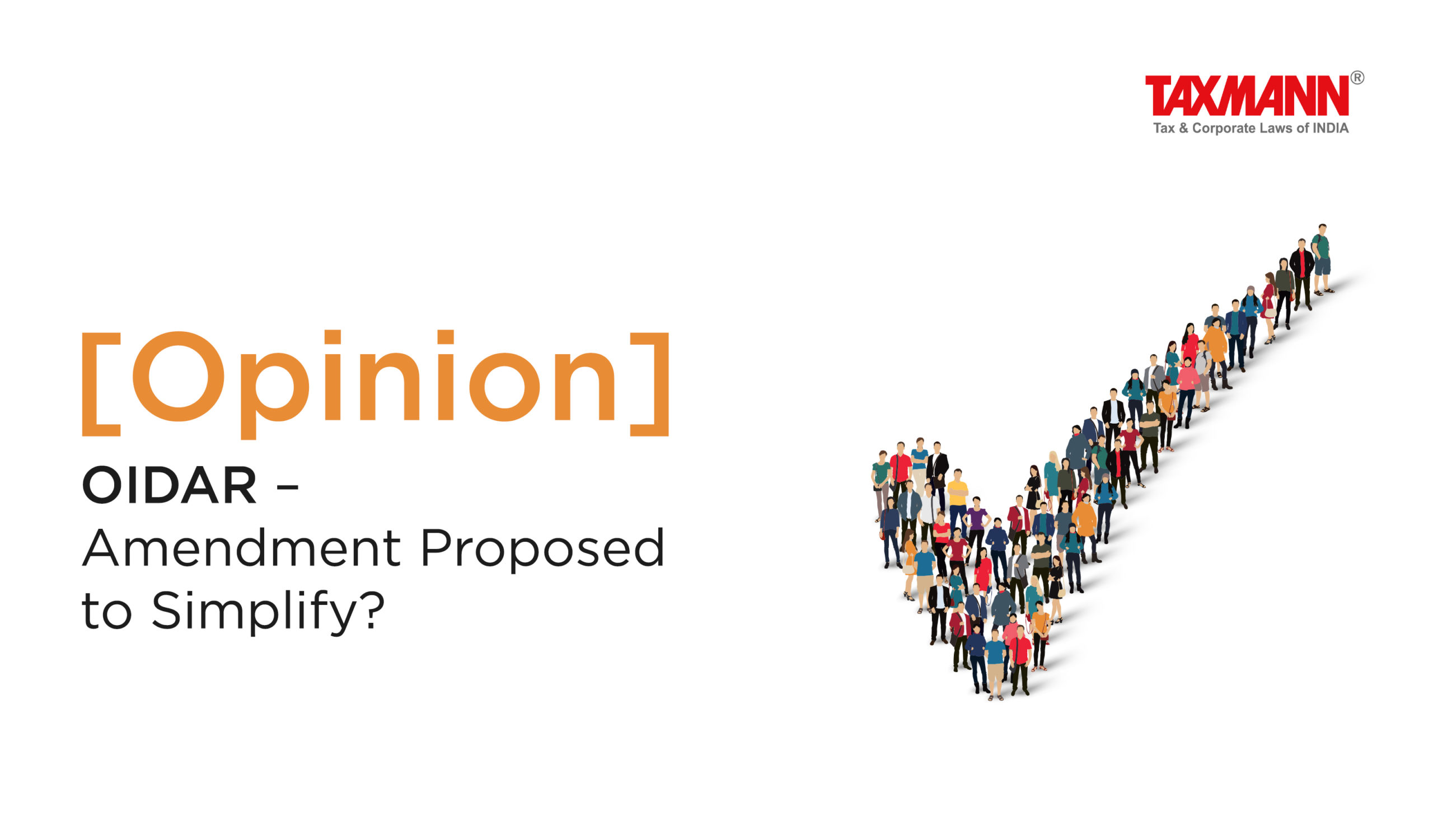[Opinion] OIDAR – Amendment Proposed to Simplify?
- Blog|News|GST & Customs|
- 2 Min Read
- By Taxmann
- |
- Last Updated on 8 August, 2023

Biren Vyas, Neil Anuj Killawala & Priya Jain – [2023] 153 taxmann.com 127 (Article)
Internet access boosting the Economy
The availability of feature-rich cell phones, laptops at low-cost, fuelled by the Digital India campaign has pushed service providers to transform the way services are delivered. As a result, the players in advertising, media, education, and gaming have grown exponentially over last few years.
On emergence of Coronavirus, the frequency and accessibility for certified foreign institutions courses have increased wherein lectures/ trainings are provided completely online i.e., through the internet medium.
Easy access to internet has boosted business opportunities and consequently, tax collections. International platforms are frequently accessed by Indian consumers.
Considering the growing demand in these sectors and to protect/ promote home-grown industries, the Government has proposed to widen scope of OIDAR (Online Information and Database Access or Retrieval).
Given this, the increase in scope of OIDAR provision would create challenges for businesses.
Considering this, we have provided a gist about current OIDAR definition and comparison proposed OIDAR definition under GST law.
What is OIDAR?
A category of services which are provided digitally through the medium of the internet and received by the recipient with minimum human intervention and essentially automated. [Section 2(17) of IGST Act, 2017]
Example- Downloading of content, viewing online recorded lectures, online gaming, access to entertainment platforms.
On the recommendations of the GST Council, the Union Budget 2023-24 has proposed to amend the definition of OIDAR, and this has created turmoil for the global businesses. The proposed amendment shall be effective from 1 October 2023.
Click Here To Read The Full Article
Disclaimer: The content/information published on the website is only for general information of the user and shall not be construed as legal advice. While the Taxmann has exercised reasonable efforts to ensure the veracity of information/content published, Taxmann shall be under no liability in any manner whatsoever for incorrect information, if any.

Taxmann Publications has a dedicated in-house Research & Editorial Team. This team consists of a team of Chartered Accountants, Company Secretaries, and Lawyers. This team works under the guidance and supervision of editor-in-chief Mr Rakesh Bhargava.
The Research and Editorial Team is responsible for developing reliable and accurate content for the readers. The team follows the six-sigma approach to achieve the benchmark of zero error in its publications and research platforms. The team ensures that the following publication guidelines are thoroughly followed while developing the content:
- The statutory material is obtained only from the authorized and reliable sources
- All the latest developments in the judicial and legislative fields are covered
- Prepare the analytical write-ups on current, controversial, and important issues to help the readers to understand the concept and its implications
- Every content published by Taxmann is complete, accurate and lucid
- All evidence-based statements are supported with proper reference to Section, Circular No., Notification No. or citations
- The golden rules of grammar, style and consistency are thoroughly followed
- Font and size that’s easy to read and remain consistent across all imprint and digital publications are applied



 CA | CS | CMA
CA | CS | CMA
